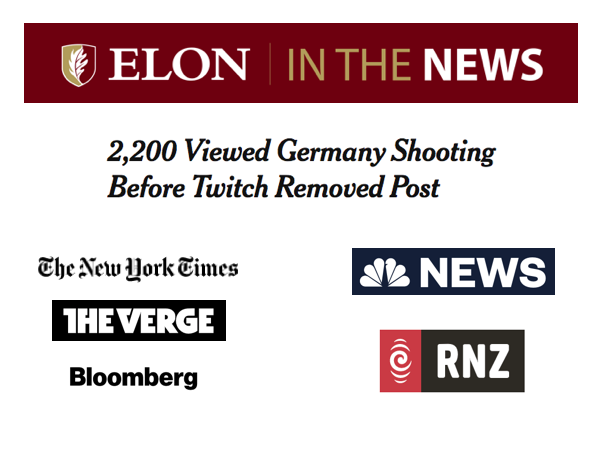Coverage of a shooting outside a synagogue in Halle, Germany, on Oct. 9 included insights from Squire, a professor of computer science who has conducted significant research into online extremism.
Coverage by national and international media of the Oct. 9 shooting outside a synagogue in Halle, Germany, that left two dead included insights from Megan Squire, a professor of computer science who has conducted significant research into online extremism.
The alleged shooter uploaded video of his attempted attack on the synagogue to the live-streaming platform Twitch until the video was reported and removed. However, before it was removed it was posted on right-wing websites and archived there, Squire found.
Squire noted that footage of the attack had flowed through the messaging platform Telegram within 30 minutes of the shootings and reached more than 15,000 accounts. She told the New York Times that on several “very severely racist, violent channels” she monitors as part of her research into online extremism, users debated whether the gunman should be made into a saint.
“Telegram exists as a forwarding network — that’s the main way the information flows,” Squire told the New York Times. “It’s a very efficient mechanism for them.”
Squire’s insights into how the video spread online were also noted in coverage by NBC News, The Verge, Bloomberg and others.
In an interview with Radio New Zealand, Squire offered a more in-depth explanation of how a portion of Telegram — channels — was being used to spread the video. “They basically serve as an unencrypted, wide-open propaganda channel — imagine like a Twitter feed,” Squire said. “Right now that is where the videos are spreading the most.”



